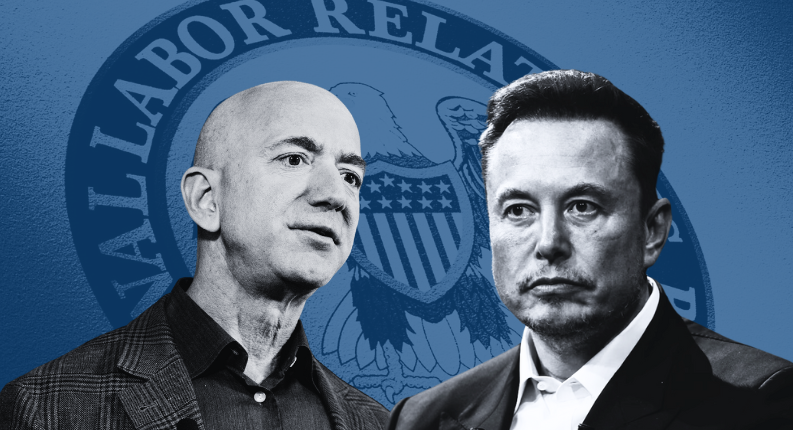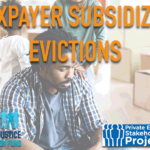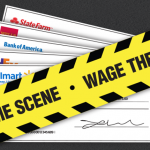New unionbusting data released by American Rights at Work
WASHINGTON, DC—In conjunction with International Human Rights Day, Saturday, December 10, workers’ rights advocacy group American Rights at Work releases new data on extensive employer conduct designed to undermine union organizing efforts. American Rights at Work Board Chair and former Democratic Whip David Bonior will share findings at events this week in Indianapolis, Chicago, and Houston, organized by labor, human rights, and community activists who seek to draw attention to the crisis facing America’s workforce.
Unionbusting Pervasive and Pernicious
Undermining the Right to Organize: Employer Behavior During Union Representation Campaigns demonstrates that a majority of employers aggressively use both legal and illegal anti-union tactics during union representation elections overseen by the National Labor Relations Board (NLRB). The report, conducted by the University of Illinois at Chicago’s Center for Urban Economic Development (CUED) and commissioned by American Rights at Work, finds that:
-
30% of employers fire pro-union workers.
-
49% of employers threaten to close a worksite when workers try to form a union.
-
51% of employers coerce workers into opposing unions with bribery or favoritism.
-
82% of employers hire unionbusting consultants to fight organizing drives.
-
91% of employers force employees to attend one-on-one anti-union meetings with supervisors.
“Employer interference continues to be off the charts—with devastating consequences for workers,” says David Bonior. In 91 percent of the cases surveyed for the report, a majority of workers indicated that they wanted a union before the representation election process began. In several instances workers demonstrated more than 80 percent support for a union. However, after workers were exposed to employer unionbusting activity, only 31 percent of these campaigns resulted in union-represented workers. “Our research clearly shows that firings, bribes, and threats are pervasive and that these actions greatly impede workers’ ability to form unions,” says report co-author and CUED Director Nik Theodore.
Workers Rights Are Human Rights
“This report reveals that the NLRB election process actually serves to undermine the will of the majority,” says David Bonior. “When we discover undemocratic, government-sanctioned abuses of power like this in other parts of the world, we call them human rights violations. The same should be said about hostile labor relations practices here at home.”
Widespread unionbusting campaigns and ineffectual labor laws result in more than 23,000 workers who are fired or penalized each year in the United States for their support of a union. “The report contributes to a growing body of research exposing the violation of the right of America’s workers to freely and fairly choose to form unions,” says American Rights at Work Executive Director Mary Beth Maxwell.
Undermining the Right to Organize is based on a survey of 62 campaigns conducted in the Chicago metropolitan area during 2002. Additionally, researchers reviewed data provided by Region 13 of the NLRB on all campaigns by unions to represent previously unorganized workers, conducted case studies of 25 campaigns, and interviewed union organizers, workers, and NLRB representatives. The study confirms findings from the seminal national survey on employer anti-union behavior, Uneasy Terrain: The Impact of Capital Mobility on Workers, Wages and Union Organizing (2000) by Kate Bronfenbrenner of Cornell University.
“While focused on Chicago, this study has national significance,” says Kate Bronfenbrenner. “It confirms that patterns of behavior previously reported in my research persist—or are even worse in many instances—when deeply explored at a local level.”
A Call for Labor Law Reform
The ability of employers to manipulate the current union representation election process without reprisal has led workers to turn to alternative methods of forming unions such as card check. Under this process, employers recognize and agree to collectively bargain with the union when employees demonstrate that a majority desires to form a union by presenting signed authorization cards. “Successful employers and industry leaders like Cingular Wireless, Kaiser Permanente, and Harley-Davidson Motor Company have made a commitment to card check or neutrality agreements,” notes David Bonior. “They prove that hostile, knee-jerk unionbusting is a choice, not a necessity.”
“These findings should alarm Congress and motivate them to reform labor law,” says David Bonior. “Enacting the Employee Free Choice Act is an important first step towards guaranteeing that workers can exercise their democratic right to form unions and successfully negotiate contracts with employers.”
The bill would establish card check as a process for union recognition, a sorely needed alternative to the flawed election system. The legislation would also toughen penalties for employers who violate labor law, and would implement a mediation process so that employers and unions reach contracts within a reasonable period of time.
“The current state of workers’ rights in America isn’t acceptable,” David Bonior concludes. “We’ve got to fix this broken system.”
To download a copy of the full report or a fact sheet about the new findings, click here.
###






